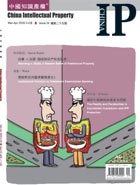
On March 18, 2009, the Chinese government rejected Coca-Cola’s USD2.4 billion bid for Huiyuan Juice Group Limited because it would violate the anti-monopoly law. The news not only quashed the hopes of Huiyuan’s Chairman Zhu Xinli to “raise the company like a son, but sell it like a pig,” but also caused a stir at home and abroad. The Wall Street Journal reported that “China made use of its new Anti-Monopoly Law to protect trade leaders, caress nationalists at home, and set a road block for foreign buyers from touching successful Chinese companies.”
Actually, Coca-Cola was not the first to be turned down. In 2005, the intended acquisition of XCMG, an engineering machinery company based in Xuzhou, by the Carlyle Group was denied after failing to survive the lengthy examination period. The difference lies in the fact that Coca-Cola became the first “prey” of enforcement authorities who have been feeling their way around since August 1, 2008, when the new Anti-Monopoly Law went into effect.
In September of 2008, The Ministry of Commerce received declarations of a takeover between Coca-Cola and Huiyuan Juice Group Limited. The case was scheduled for examination on November 20, and a decision of further examination was issued on December 12. The Ministry finally concluded that the takeover would cast doubt on free competition, and allow Coca-Cola to make use of its dominance in the carbonated soft drink market as a tie-in or tying, thus restraining competition in the juice market. This would force consumers to pay higher prices and accept fewer choices. In the meantime, restrained competition cannot be offset by potential competition as a result of a market barrier by existing brands. The takeover would also reduce breathing room for medium-and-small-sized juice makers, and have a negative impact on the structure of competition in China’s beverage market.
Ministry of Commerce spokesman Yao Jian said that “whether Huiyuan is a national brand is not a consideration in anti-monopoly examinations, and has no connection with the rejection of the acquisition. Since Coca-Cola would obtain absolute control over Huiyuan by obtaining the lion’s share or even 100% of its stock, the deal qualifies for the statutory definition of a takeover.” Furthermore in 2007, sales in China from Coca-Cola (USD1.2 billion) and Huiyuan (USD340 million) exceeded the 400 million Yuan declaration benchmark laid down in the Provisions of the State Council on the Standard for Declaration of Takeover of Business Operators. According to statistics from the China Beverage Industry Association, Coca-Cola maintains a 60.6% market share of carbonated drinks in China. Considering its advantages in assets, brand, management, and marketing, the Ministry asserted after examination and assessment that Coca-Cola dominates the carbonated soft drink market.
However, figures from Euromonitor indicate that Huiyuan also occupies a dominant position in China’s pure fruit juice market, with a market share of one third; while Coca-Cola’s share is minimal. Huiyuan and Coca-Cola control 17.3% of China’s soft drink market.
(Translated by Li Heng)
|
Copyright © 2003-2018 China Intellectual Property Magazine,All rights Reserved . www.chinaipmagazine.com 京ICP备09051062号 |
|
|



